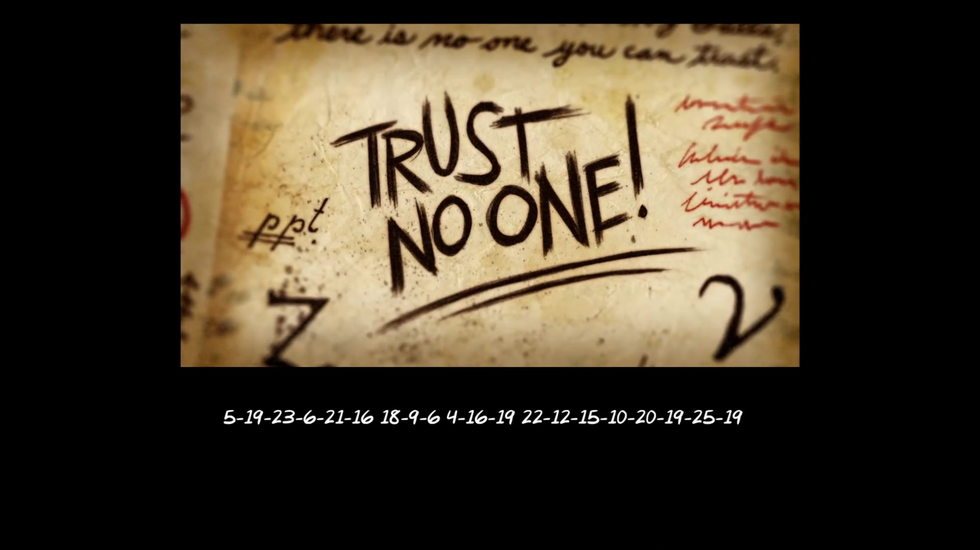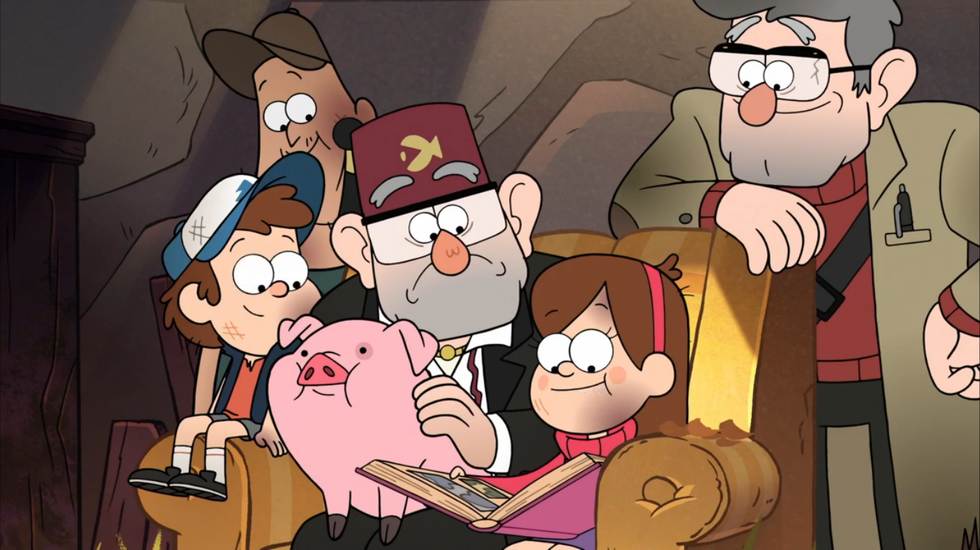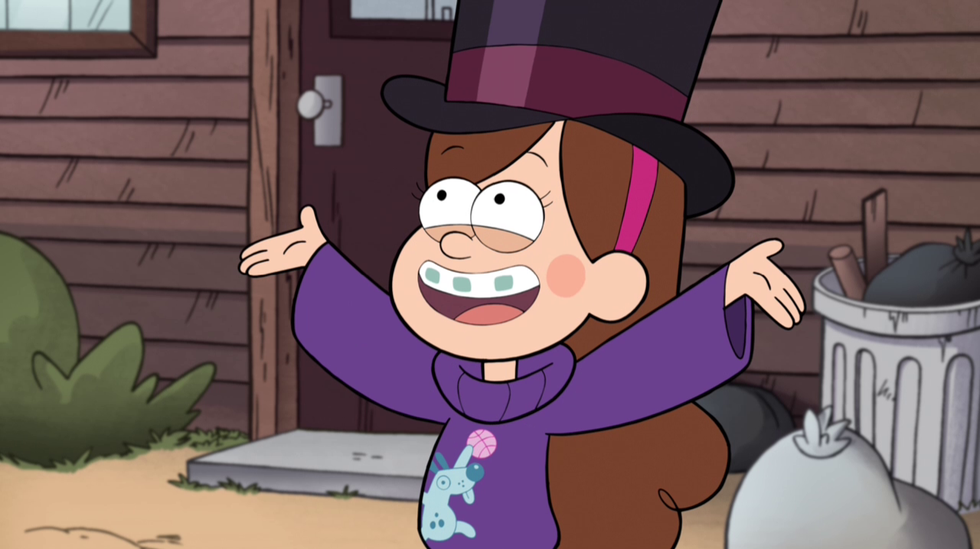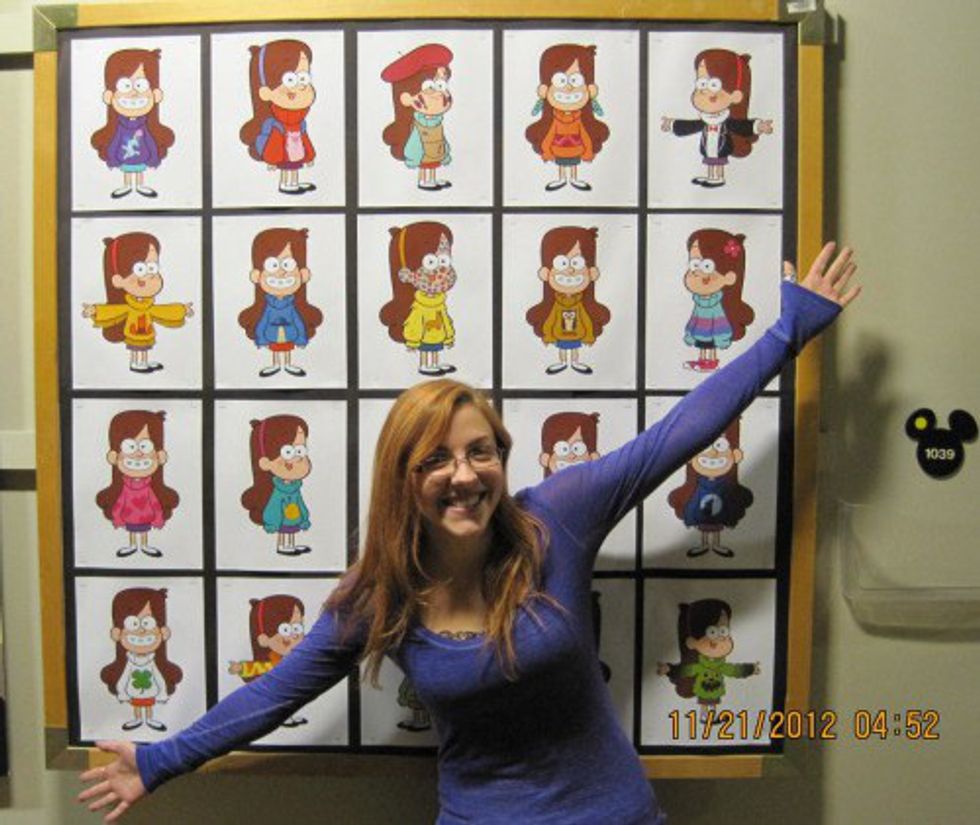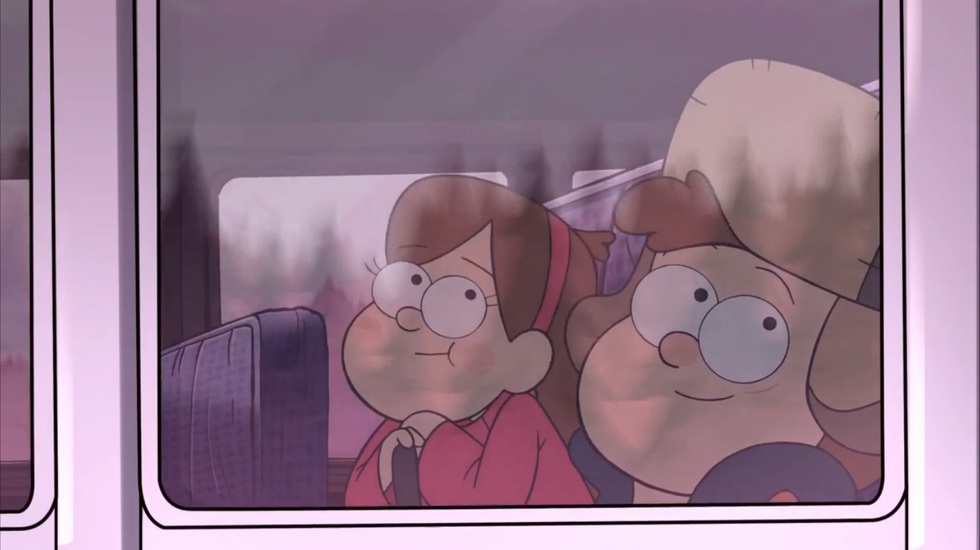It’s bizarre to think about “Gravity Falls” being over. The way it embodied a perfect sense of endless summer, along with its poorly planned airing schedule, truly made it seem like the show would never end.
Even though I was legally an adult (but technically a teen) when it started, I feel as if I have grown up with it. I would like to share a few things I learned along the way, playing in the woods of a hick town in Oregon.
1. “Trust No One” are no words to live by.
The phrase “Trust No One” was seeded firmly in popular culture by “The X-Files” and has remained a favorite of conspiracy theorists ever since. Despite its iconic status, one should not take “Trust No One” as a personal philosophy.
Letting certain people into one’s head can seem like a big mistake and, at times, trusting people too much can lead to a lot of pain. However, spending every day feeling as if everything has to be kept inside, as if no one could ever understand or help, will leave a person emotionally exhausted.
Living by words as simple as “I want to believe” or “I trust you” will open up a world of possibilities.
2. Always keep a scrapbook or journal.
Dipper and Mabel both catalog their summer memories in different ways. Dipper, in imitation of the once-mysterious author, writes in a journal, while the more visually-inclined Mabel places pictures alongside experimental pasta art in her scrapbook.
I was inspired by this to put my thoughts on paper in a way I hadn’t done in years. Often I’ll jot down what I’m thinking or cover a page in photos and stickers. Also, you can bet I’ll be packing at least 17 cameras to snap any cryptid or heartwarming moment that comes my way.
Watching “Gravity Falls” inspired me to become a more clever writer who told genuine stories with real characters, fantastic circumstances aside. Seeing the way Alex Hirsch took inspiration from his personal life and transformed it into art made me realize the potential stories and characters that have grown with me in my own backyard. I find myself taking notes about my mother, friends and siblings, looking to see myself reflected in my stories.
3. It’s OK to be weird.
In fact, being weird is the best thing in the world. As a teenager, I would mix and match clothing, don lacy fingerless gloves and wear giant bows in my hair. I saw a lot of myself in Mabel, whose weirdness is celebrated in the series.
She is allowed to be fun and perceptive, wrapped up in sweaters as weird and wonderful as she is. Mabel is only 12, yet still I find myself thinking, “I want to grow up to be someone like her.”
For some time, I worried that I would hide my unique style and personality out of fear of being made fun of or considered unprofessional. Seeing a character like Mabel gave me hope for all the weird girls out there.
I firmly believe that weird girls will save the world.
4. Growing up is optional.
When “Gravity Falls” first started, I had just graduated high school. The only thing I remember about that summer is being afraid. I was scared of drifting away from high school friends, of going into the unknown, but most of all, of growing up and giving up on children's books and cartoons, creativity and optimism.
It was cathartic to see these tensions driving the show’s storylines. I could see my worries of losing myself through growing up in Mabel; Dipper shared my anxieties about never meeting social expectations; and in Stan, I saw my fear of time and space straining my relationship with my brother.
Once decoded, one of the many ciphers in the series reads "Growing up is optional." On the surface, this is read as an ominous warning of the dangers to come in the narrative. However, the creator, Alex Hirsch, encourages people to consider another meaning: no one has to give up who they are in getting older. The future is frightening, but there is no need give up "childish things." There is nothing wrong with having fun at work, making silly faces or watching a cartoon on the Disney Channel.
5. If you’re curious, don’t wait.
Anyone who has seen the Pixar film “Up” will be familiar with the words “Adventure is out there.” The idea that in the “real world” there is no wonder or mystery is entirely false. Perhaps it’s meeting up with a new friend, or searching for a new job, or scouring the Oregon forests for a statue that Hirsch has supposedly buried, but there is endless potential for new discoveries in life. “Gravity Falls” proposes growing up as its own adventure, ordinary as it may seem.
It has been, as far as I’m concerned.



